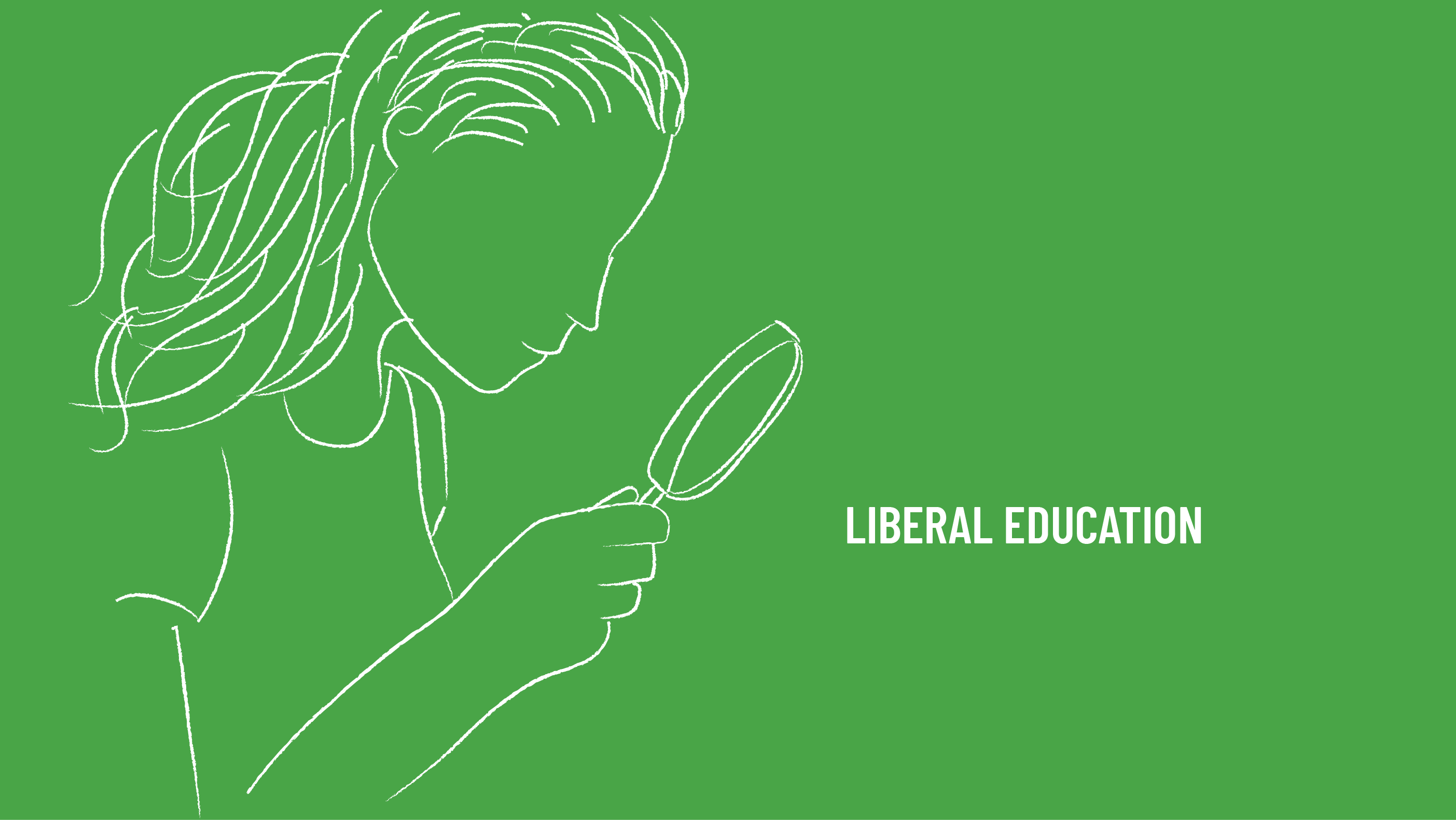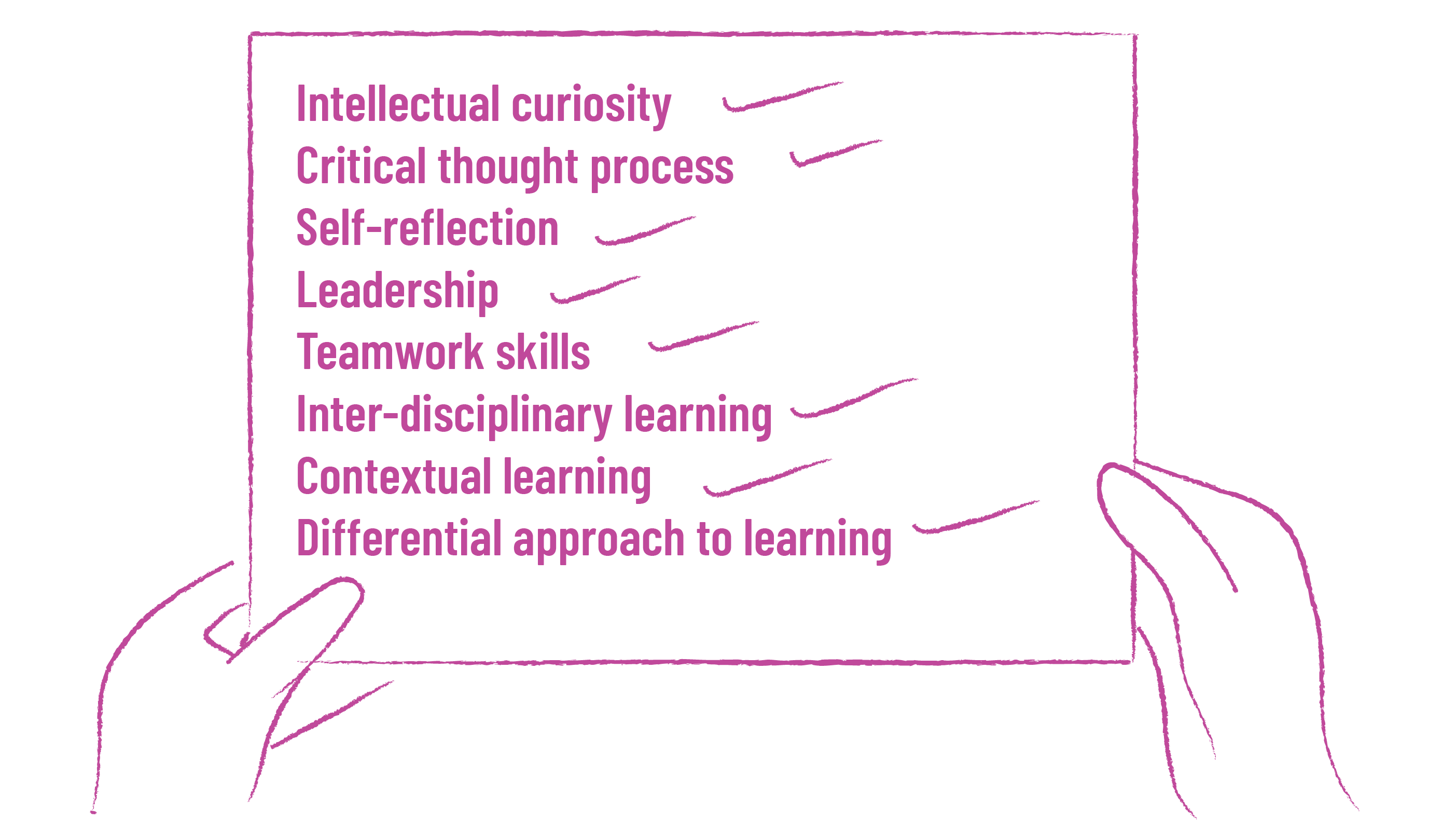Frequently asked questions about liberal education in India
3 September 2021 — Written by Aishwarya Muralidhar

A liberal education is a system of education suited to help learners become a free human being. What do we mean by this? Aren’t we all inherently free? Liberal studies aim to broaden minds and aid learners to think critically, whilst not being restricted to technical education. For example, how often have you been told to think outside of the box and not really been sure of how to do that? How do you think differently
when you don’t know what that process is like?
That’s where liberal education comes into the picture. Facilitators take learners on a journey to understand the subject at hand through different mediums and angles in order to help them arrive at important conclusions on their own. In stark contrast to the rote learning that most of us were subject to!
It is critical to understand that the word liberal in ‘liberal education’ is not political.Don’t let that sway your understanding of liberal education!
Why does liberal education matter?

There are plenty of ways that liberal education can help learners. Perhaps the most important is the fact that they are not limited to a specific set of skills. Instead, they are presented with opportunities to pick up a variety of skills that help them become all-rounded individuals with broad perspectives.
Why is liberal arts called ‘liberal arts’?
The liberal arts have no connection to politics. So what does the term mean? The idea comes from the Romans, who referred to it as artes liberales. Which was a set of skills that all citizens had to be educated in. This included natural science, music, ethics, geometry, politics, and most importantly, the means to communicate effectively. Well over 2000 years later, the liberal arts have grown.
The arts encompasscrucial training that help students to adapt, step out of their comfort zone and think critically. And perhaps most importantly, the liberal arts kindles a fire in students to be lifelong learners.
Why is liberal education sometimes construed as bad?
Education has always been looked at as a one size fits all solution. Liberal education that deep dives into majors such as arts, humanities, commerce and pure sciences take us to the deep interests and inclinations of a learner in those subject areas.Liberal education does not stop with guaranteeing one with the license to go out and practice their learning. It develops the skills to construct and reconstruct arguments and to appreciate the multiple perspectives that can exist around any concept.
Most approaches to education will not guarantee a job right from the get go. Jobs of the future are changing as we speak and there is very little that we know about what they will be. The same holds true for liberal education. One will have to study the job market for the major they choose and then make a choice depending on their objectives and circumstances.
The liberal education degree, like any other degree, may or may not land you in a plush job. But it will likely bridge the gap between the major and the job in the field of your choosing. There are new innovations that are forcing changes in the job market everyday. Keep in mind that the wheel will continue to turn, and the marketable degrees of today may not be as lucrative in the years to come. Jobs that we’ve yet to hear of may emerge as the lucrative ones!
Conclusion
Liberal education equips learners with the skills that are crucial for their everyday lives. Most of which are often overlooked or not given importance in traditional modes of education. By incorporating different disciplines, students are pushed to learn a wide range of subjects and the wherewithal to think critically.
Are there any other questions about liberal education that you’d like us to answer? Let us know and we’d be happy to address them! Learn more about how Beyond 8 provides learners with transformative pathways to liberal education, here.